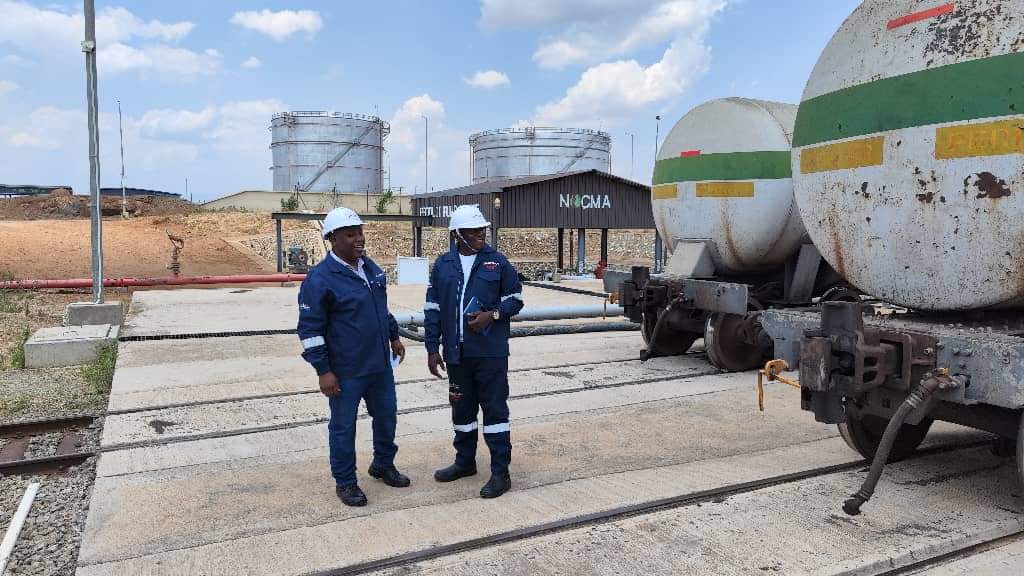By Jones Gadama
In the vibrant political landscape of Malawi, where the aspirations of the populace often clash with the realities of governance, one independent candidate has emerged as a beacon of hope and innovation: Adil James Chilungo.
His recent nomination and the unveiling of his manifesto have not only captured the attention of the Malawi Electoral Commission but have also resonated deeply with social commentators and the electorate alike.
Among those who have lauded his vision is Mathews Namukhoyo, a respected political commentator who has emphasized that no party has matched the depth and relevance of Chilungo’s proposals, particularly his commitment to promoting organic fertilizer.
This analysis seeks to explore the multifaceted dimensions of Chilungo’s candidacy, highlighting his unique approach to sustainable agriculture, economic empowerment, and community development.
At the heart of Adil Chilungo’s manifesto lies a profound understanding of the challenges facing Malawian farmers.
Agriculture is the backbone of Malawi’s economy, employing a significant portion of the population and contributing to food security.
However, the sector is plagued by numerous issues, including soil degradation, reliance on chemical fertilizers, and the impacts of climate change.
Chilungo’s advocacy for organic fertilizer is not merely a policy proposal; it is a transformative vision aimed at revitalizing the agricultural landscape of Malawi. By promoting organic farming practices, he seeks to enhance soil fertility, reduce dependency on harmful chemicals, and ultimately improve crop yields.
This approach aligns with global trends towards sustainable agriculture, positioning Malawi as a potential leader in this critical area.
Chilungo’s emphasis on organic fertilizer is particularly noteworthy in a country where many farmers struggle with the high costs and environmental consequences of synthetic fertilizers. His manifesto outlines a comprehensive strategy to make organic fertilizers accessible and affordable for smallholder farmers, who constitute the majority of the agricultural workforce.
By advocating for the production and distribution of organic fertilizers, Chilungo not only addresses the immediate needs of farmers but also fosters a culture of sustainability that can have long-term benefits for the environment and public health.
This forward-thinking approach demonstrates his commitment to not just alleviating poverty but also ensuring that future generations inherit a healthier planet.
Moreover, Chilungo’s vision extends beyond agriculture; it encompasses economic empowerment and community development. His manifesto articulates a clear plan to create jobs and stimulate local economies through the promotion of organic farming.
By investing in training programs for farmers, he aims to equip them with the knowledge and skills necessary to adopt sustainable practices.
This investment in human capital is crucial, as it empowers individuals to take control of their livelihoods and contribute to the overall economic growth of their communities.
Chilungo’s focus on education and capacity building reflects a holistic understanding of development, recognizing that true progress is achieved when individuals are empowered to make informed decisions about their lives and their environment.
In addition to his agricultural initiatives, Chilungo’s manifesto addresses the pressing issue of food security in Malawi.
With a growing population and increasing climate variability, ensuring that all Malawians have access to sufficient, safe, and nutritious food is paramount. Chilungo’s approach to food security is rooted in the principles of sustainability and resilience.
By promoting organic farming, he not only aims to increase food production but also to enhance the nutritional quality of the food available to Malawians.
This dual focus on quantity and quality is essential in a country where malnutrition remains a significant challenge. Chilungo’s commitment to food security underscores his understanding of the interconnectedness of agriculture, health, and economic stability.
Chilungo’s candidacy also represents a departure from traditional political norms in Malawi.
As an independent candidate, he is not beholden to party politics or the often divisive rhetoric that characterizes electoral campaigns. This independence allows him to focus on the needs of the people rather than party agendas, fostering a sense of trust and authenticity among voters.
In a political climate where many citizens are disillusioned with established parties, Chilungo’s fresh perspective and genuine commitment to service resonate strongly.
His ability to connect with the electorate on a personal level, coupled with his clear and actionable proposals, positions him as a candidate who truly understands the aspirations and challenges of the Malawian people.
Furthermore, Chilungo’s manifesto reflects a deep commitment to inclusivity and social justice.
He recognizes that marginalized groups, including women and youth, play a crucial role in the agricultural sector and must be actively engaged in decision-making processes.
By advocating for policies that promote gender equality and youth empowerment, Chilungo seeks to create an inclusive agricultural landscape where all voices are heard and valued.
This commitment to social equity not only strengthens his candidacy but also aligns with global development goals, positioning Malawi as a progressive nation on the international stage.
The endorsement of Chilungo’s manifesto by commentators like Mathews Namukhoyo speaks volumes about its relevance and potential impact. Namukhoyo’s assertion that no party has matched Chilungo’s proposals highlights the urgency of addressing the challenges facing Malawian agriculture and the need for innovative solutions.
Chilungo’s focus on organic fertilizer is not just a policy choice; it is a call to action for all stakeholders in the agricultural sector to embrace sustainable practices that benefit both farmers and the environment. His vision challenges the status quo and encourages a collective rethinking of how agriculture is approached in Malawi.
As the electoral campaign unfolds, it is essential for voters to critically assess the proposals put forth by all candidates.
Adil James Chilungo’s manifesto stands out not only for its innovative approach to agriculture but also for its comprehensive vision for a sustainable and equitable Malawi. His commitment to organic fertilizer, food security, and community empowerment reflects a deep understanding of the interconnected challenges facing the nation.
In a time when the stakes are high, and the need for transformative leadership is greater than ever, Chilungo’s candidacy offers a refreshing alternative that prioritizes the well-being of the people and the planet.
Adil James Chilungo represents a new wave of leadership in Malawi, one that is grounded in sustainability, inclusivity, and a genuine commitment to the welfare of the populace.
His advocacy for organic fertilizer and sustainable agricultural practices is not just a campaign promise; it is a vision for a brighter future for Malawi.
As voters prepare to make their choices, it is crucial to recognize the significance of Chilungo’s proposals and the potential they hold for transforming the agricultural landscape and improving the lives of millions. In a world increasingly aware of the need for sustainable development, Chilungo’s candidacy is a timely reminder that change is possible when visionary leaders step forward to champion the causes that matter most.




